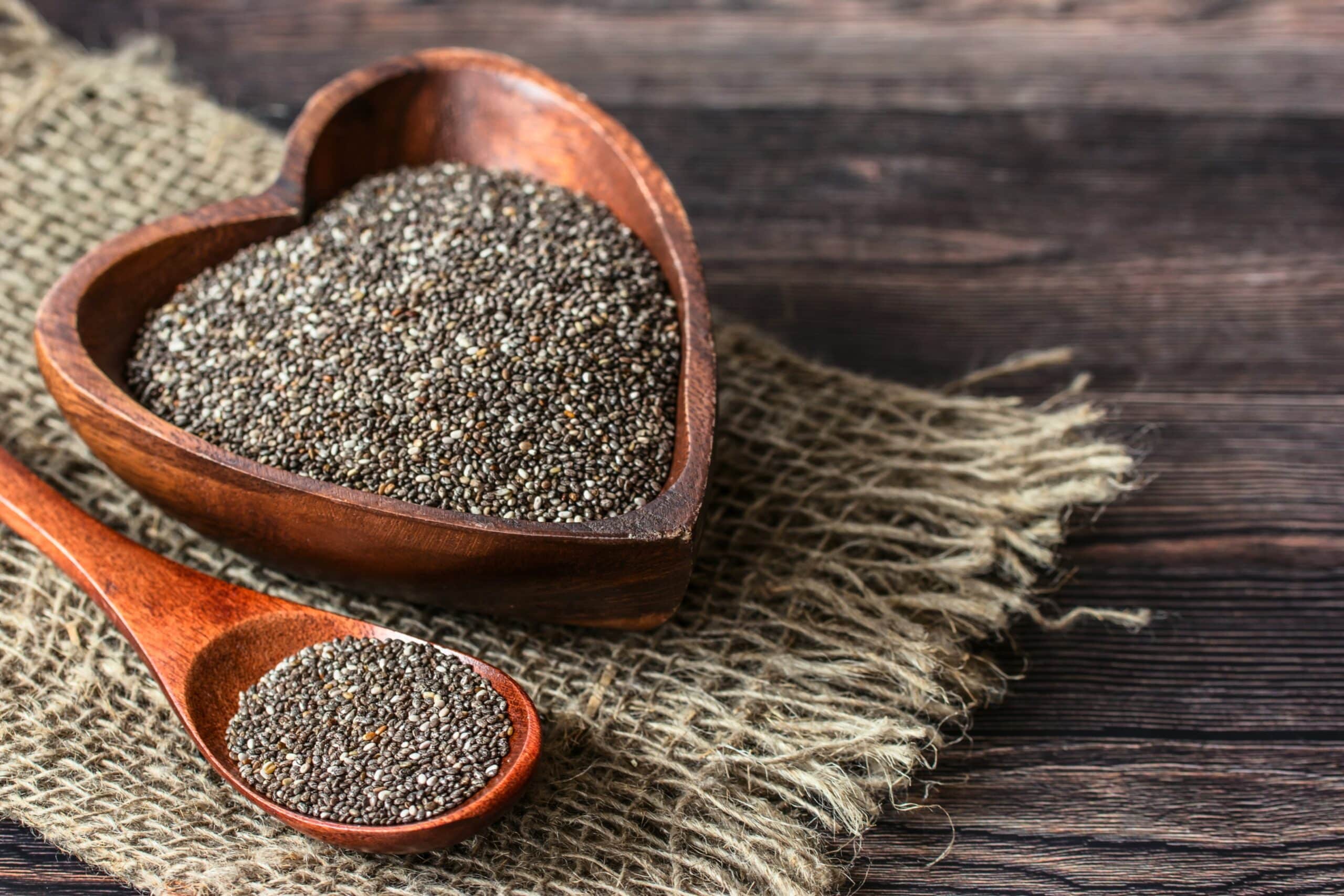These versatile and nutritious tiny seeds are commonly ground, stirred, or sprinkled into smoothies, yogurt, pudding, salads, and oatmeal making them great for those on the go. The gel produced from the ground seeds can even be used as an egg substitute in pancakes and baked goodies.
One of the benefits of chia seeds is that they are rich in nutrients while being very low in calories. Just two tablespoons (one ounce) contain 18% of the daily recommended value (RDV) of calcium, 137 calories, 30% of the RDV for manganese and magnesium, 2.19 mg of iron, as well as 27% of the RDV for phosphorus, and 9 grams of fat of which five are omega-3s. They are also rich sources of zinc, potassium, vitamins B1, B2, and B3, and antioxidants and omega-3 fatty acids. All of these nutritional components make them an extremely efficient source of nutrients.
To go along with the nutrient profile, chia seeds are a good source of fiber, containing 11 grams as well as 4.68 grams of protein in those same 2 tablespoons. As most people don’t reach the DRV of 30 grams of fiber, adding chia seeds to your diet is a good option to help reduce the risk of heart disease, type 2 diabetes, and colorectal cancer, as well as helping to regulate blood sugar levels.
Those looking to up their intake of anti-aging antioxidants that can help to prevent or delay certain types of cell damage may want to consider chia seeds as well as they are a rich source of antioxidants due to the presence of chlorogenic acid, caffeic acid, myricetin, quercetin, and kaempferol which are believed to help protect the heart and liver as well as having anti-aging and anti-carcinogenic characteristics.
Those looking to add more plant-based protein to their diet may find chia seeds to be a good option as they are approximately 14% protein, and they are a complete protein containing all of the essential amino acids that are required for human nutrition including isoleucine, leucine, lysine, methionine, phenylalanine, threonine, tryptophan, histidine, and valine which help build proteins, grow muscle, and transport nutrients.
Another plus is that gram-for-gram chia seeds contain more omega-3 fatty acids than salmon does which has various anti-inflammatory properties and may also help to support better brain and heart health as well as improve stress response.
The rich calcium, magnesium, and protein content will also help to support healthy bones which again is good news for those looking to increase their intake of more plant-based options as 25 grams of chia seeds contains 157 grams of calcium which is more than the content of 100 ml of dairy milk.
Several studies suggest that chia seeds help to improve blood sugar, cholesterol, inflammation, constipation, and improve bone health, as well as blood clots among other health benefits due to their potent antioxidant activities. Studies suggest that regular consumption of chia seeds could significantly reduce blood pressure for those with hypertension, and the rich omega-3 content can work as a blood thinner reducing overall blood pressure. The reductions can support overall heart health and may help to reduce the risk of cardiovascular disease and all-cause mortality. It is worth noting that those taking medications should consult with their physician as very large quantities of chia seeds could potentially interact with certain blood pressure or blood sugar medications.
The body digests chia seeds slowly which will provide slow-release energy and help to keep blood sugar levels stable throughout the day, while the fiber content can slow the absorption of sugar into the blood and decrease overall blood sugar levels.
Additionally, the high concentration of soluble fiber makes chia seeds expand in the stomach which can help to keep you feeling fuller for longer and reduce snacking which can help to support healthy weight loss as part of a healthy diet when combined with exercise.
It is fairly easy to incorporate chia seeds into your diet because they are fairly flexible. You can try to add a tablespoon to a smoothie; add them in trail mix; use chia flour to cook with; as a salad topping; eat with nut butter; sprinkle on a fruit salad; add into jams; in pudding; in yogurt; mix into eggs; or in chia infused water.
To make chia-infused water: soak one part of chia seeds in 16 parts of water for 10 minutes or so. You can drink the water on its own or add some honey, lemon, or fruit to give a boost to the flavor. Drink right away and add some ice to make it more refreshingly chilling. The chia seeds will absorb the water fairly quickly and turn on a chewy gel, so don’t let them sit for too long if you don’t mind drinking a firmer gel. As an alternative, you can add the seeds to the water and drink it right away rather than letting them sit. Experiment, and find your preference, how long you let them sit is up to you.




